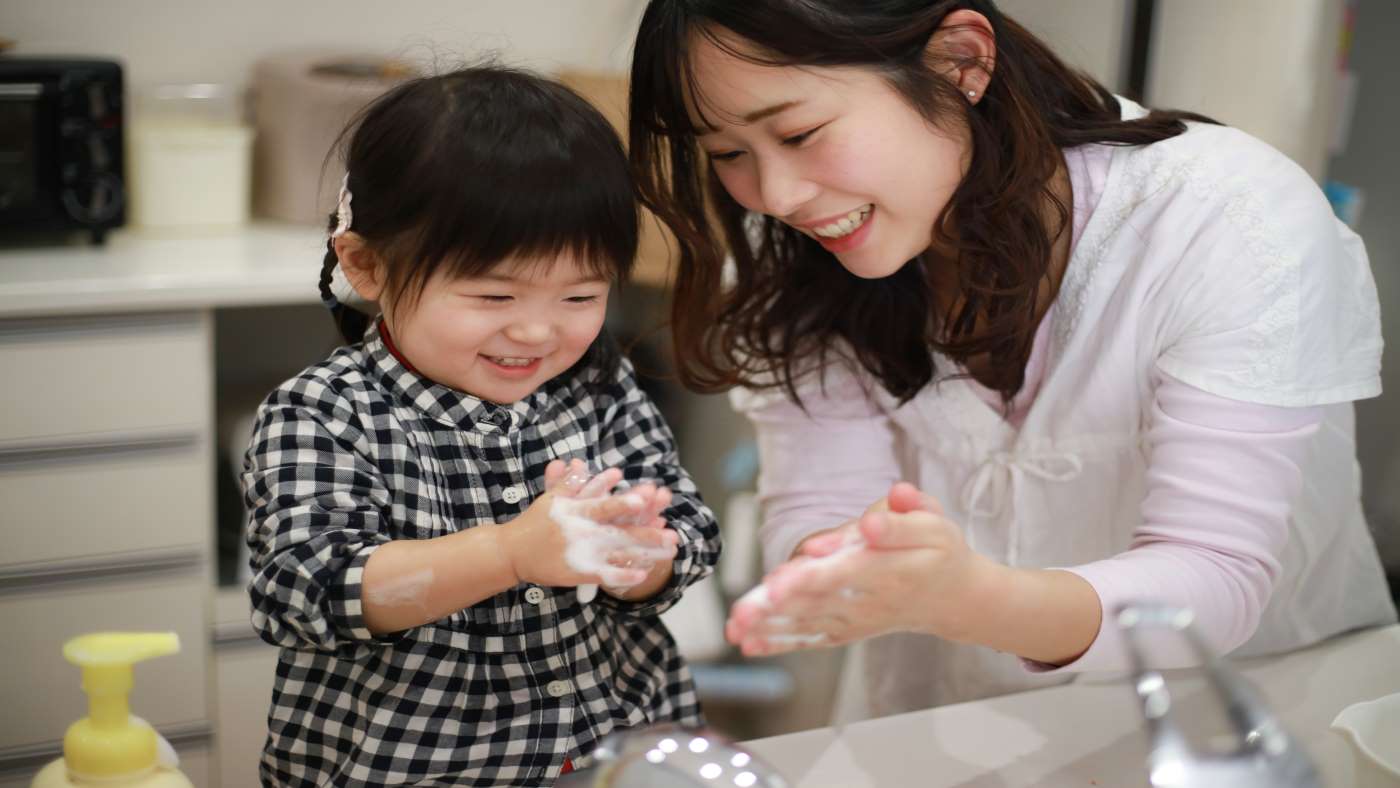Why everyday chats are great for your toddler’s speech

Learning new words is complicated and involves social, sensory, cognitive, language (and sometimes even physical) skills coming together to support learning. You and other people who are important to your toddler have an important part to play in this learning and these are some of the things we know will help.
Joint attention – or both looking at and talking about the same thing
Spending time chatting and playing with your toddler with as few distractions as possible is brilliant for their development. So, if you can turn off the TV and put your phone on the side for 10 or 15 minutes every day and just talk about anything that interests your toddler, you will help them learn.
Don't feel you need to have a topic planned to talk about, or that you need to ask lots of questions to check they’re understanding what you say. Simply notice what they seem interested in and talk about that – and if it’s been a really busy day, you could have this chat while you’re preparing a meal or stacking the dishwasher (toddlers are often really interested in the real stuff you need to do!).
Contingent responses – this sounds fancy but just means that what you say links to what your toddler said or did
To see why this helps your toddler to say more, it’s helpful to think about a chat you might have with a friend.
Imagine you meet for coffee and as you sit down you say, “Oh I’ve had an awful start, I couldn’t find my keys, then we were late for nursery.” Your friend replies, “Oh no, what are we having to drink?” You might simply answer, “I’ll have a Cappuccino,” and the conversation ends.
Or your friend replies, “Oh no that must have been awful, what happened to your keys?” Then you reply and the conversation continues, you tell the story of your morning with your friend offering comments or prompts for more information.
You can provide the same support for your toddler to expand what they say by making comments, repeating and extending what they say or asking questions to clarify and encourage them to give more information.
Supporting your toddler’s attention
Our ability to pay attention to doing something and listening develops over time, and still when something is a bit more difficult, we often choose to reduce distractions – you might turn off your music when driving somewhere new.
Your toddler needs your help to maintain their attention on a conversation, and this is one reason why we suggest reducing other noise when you’re talking – so turning music and TV off.
They will probably find paying attention a bit more tiring than an adult would – they’re still learning so it’s harder work. Reducing distractions can help with this, but also notice when your toddler is ready to finish chatting and use your knowledge of them to pinpoint when might be a good time for a chat – straight after nursery may not be ideal if they’re already tired.
Reference:
Samuelson, L.K. (2021). Toward a precision science of word learning: Understanding individual vocabulary pathways. Child Development Perspectives, 15(2), 117-124.